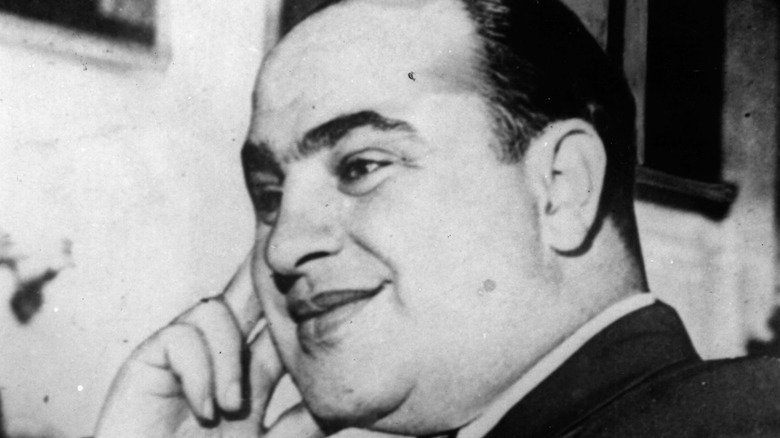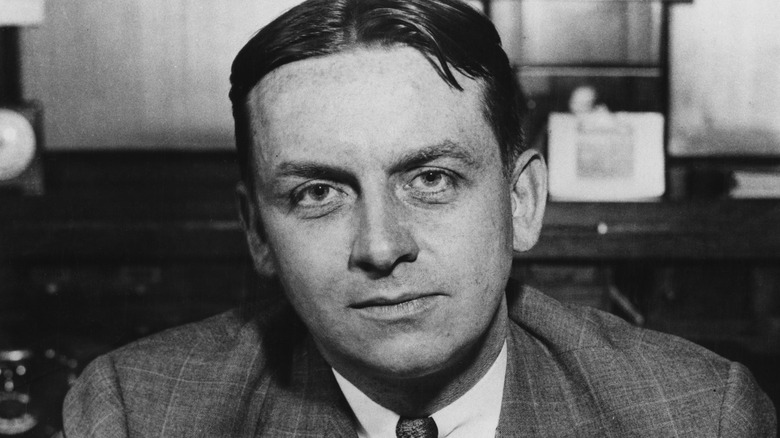Why It Wasn't Elliot Ness Who Brought Down Al Capone
Special agent in charge Eliot Ness set his sights on notorious mobster Al Capone and his Chicago gang, but he missed his mark. Ness had been appointed in November 1930 to take down Capone (pictured above). Ness had his own special handpicked team (via the Bureau of Alcohol, Tobacco, Firearms and Explosives). The story of Ness and his agents and their fight against Capone made it to the big screen with 1987's "The Untouchables." But the U.S. Treasury Department beat Ness to the punch, arresting and trying Capone on tax evasion charges in 1931 (via the Federal Bureau of Investigation).
Before the Treasury Department's case, Capone had barely done any time. In 1929, he was supposed to serve a year for carrying a concealed weapon, but he got out in nine months for good behavior. Capone caught another six months behind bars in 1931 for contempt of court, but that charge was dismissed on appeal.
While Ness and his agents gathered evidence of Capone's illegal bootlegging operations and other crimes, the Treasury Department looked at Capone's spending. His lavish lifestyle portrayed him as a very wealthy man, but he had never filed a tax return, according to Forbes magazine. It was Capone's disregard for tax law that proved to be his undoing.
Capone serves hard time for tax evasion
In June 1930, Capone was indicted by the government (via the National Archives). He faced 22 counts of federal tax evasion, and he was in good company, as his brother Ralph, Frank Nitti, Jake "Greasy Thumb" Guzik, and others had been caught in the same operation (via Forbes magazine). The charges surprised Capone, and he reportedly said, "The income tax law is a lot of bunk. The government can't collect legal taxes from illegal money" (via the National Archives). According to the Bureau of Alcohol, Tobacco, Firearms and Explosives, Ness (pictured above) got Capone indicted on more than 5,000 prohibition violations a week after the tax evasion charges.
Jurors took only nine hours to decide Capone's fate. On October 17, 1931, the jurors found Capone guilty on five counts related to federal tax evasion (via the National Archives). Judge James H. Wilkerson later sentenced Capone to pay $50,000 in fines and serve 11 years in prison (via The Berkshire Eagle). The famous crime boss also had to reimburse the court for the cost of his trial.
Capone ended up serving seven years, six months and 15 days, according to the FBI. He spent part of his sentence at the infamous Alcatraz prison in San Francisco Bay. By the time of his release in 1939, the notorious gangster was in poor physical and mental health because of syphilis. Capone spent his last days at his home on Florida's Palm Island before his death in 1947.

